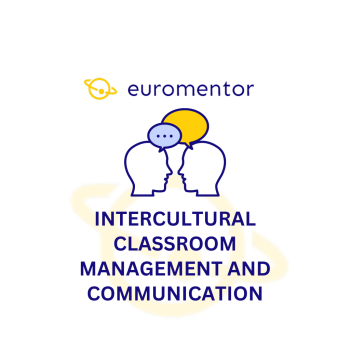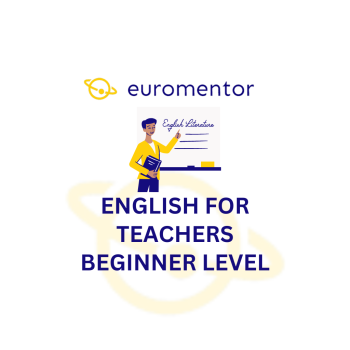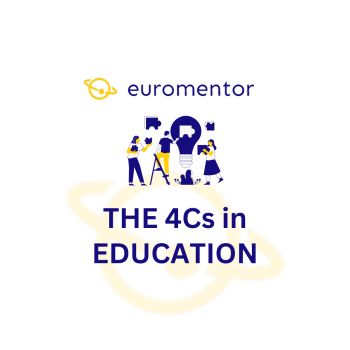
Design Thinking for Educators: Fostering Creativity and Problem-Solving Skills (Barcelona, Spain)
Design Thinking is a human-centred approach to innovation that focuses on understanding the needs of people, ideating creative solutions, and iterating to refine those solutions. By applying Design Thinking principles, educators can transform traditional teaching methods, enhance student engagement, and foster a more dynamic and inclusive learning environment.
Description
- Design Thinking is a human-centred approach to innovation that focuses on understanding the needs of people, ideating creative solutions, and iterating to refine those solutions. The benefits of Design Thinking in education include increased creativity, improved problem-solving skills, and the ability to adapt teaching strategies to better meet the diverse needs of students. By applying Design Thinking principles, educators can transform traditional teaching methods, enhance student engagement, and foster a more dynamic and inclusive learning environment.
- This course will guide participants through the core phases of Design Thinking—empathising, defining, ideating, prototyping, and testing. Through interactive workshops and real-world case studies, attendees will gain practical experience in applying these principles to address common challenges in education, such as developing engaging lesson plans, improving classroom dynamics, and creating effective school-wide initiatives.
Learning objectives
- Enhanced Creativity in Teaching Methods: Participants will develop innovative teaching strategies by applying Design Thinking principles, enabling them to create engaging and effective learning experiences that cater to diverse student needs.
- Improved Problem-Solving Skills: Educators will acquire practical problem-solving techniques to address educational challenges, such as curriculum development and classroom management, by utilising a structured Design Thinking approach.
- Increased Collaborative Skills: The course will foster teamwork and collaboration among educators, promoting a culture of shared problem-solving and collective creativity within their schools.
- Greater Empathy in Educational Practices: Participants will enhance their ability to empathise with students and colleagues, leading to more tailored and responsive educational practices that support individual learning needs and preferences.
Methodology & assessment
Interactive Workshops: The course employs a hands-on approach, featuring interactive workshops, group discussions, and collaborative activities.
Peer Learning: Participants engage in peer-to-peer learning, benefiting from the diverse backgrounds and experiences of their fellow educators.
Practical Application: The training emphasises the practical application of concepts learned.
Assessment:
Formative Assessment: Continuous assessment methods are employed throughout the course, including quizzes, group presentations, and reflective journals.
Final Project: Participants are required to develop a final project that incorporates the knowledge and skills gained during the course.
Course Evaluation: At the end of the course, participants are asked to complete an evaluation form, offering insights into the effectiveness of the training program.
Materials, digital tools & other learning resources
Materials include a toolkit, case studies, lesson templates, and interactive guides. Digital tools support collaboration, brainstorming, visual design, and document sharing. Other resources include videos, readings, practical exercises, and access to an online platform for interactive learning and peer feedback.
Certification details
Our courses meet 𝐄𝐫𝐚𝐬𝐦𝐮𝐬+ 𝐪𝐮𝐚𝐥𝐢𝐭𝐲 𝐬𝐭𝐚𝐧𝐝𝐚𝐫𝐝𝐬 for Key Action 1 (learning mobility of individuals).
Participants must attend a minimum of 80% of sessions and actively engage in discussions and practical activities to enhance their learning experience.
Upon successful completion, participants will receive a Certificate of Attendance. Learning Agreements and Europass Mobility documents are available upon request at no additional cost.
Pricing, packages and other information
-
Price:400Euro
-
Course package content:
𝐂𝐨𝐮𝐫𝐬𝐞 𝐅𝐞𝐞 𝐈𝐧𝐜𝐥𝐮𝐝𝐞𝐬 (𝐍𝐨 𝐀𝐝𝐝𝐢𝐭𝐢𝐨𝐧𝐚𝐥 𝐨𝐫 𝐇𝐢𝐝𝐝𝐞𝐧 𝐂𝐨𝐬𝐭𝐬)
- Course Materials: Essential handouts, guides, and resources to support learning.
- Administrative Support: Assistance throughout the course for smooth registration and communication.
- Monitoring and Mentoring: Ongoing support from experienced professionals for personalised guidance.
- Coffee Breaks: Refreshments during breaks to facilitate networking and informal discussions.
-
Additional information:Description of the services and activities included in the course package (such as accommodation, meals, transport) or available at extra cost.
-
Cancellation & changes:
As an Erasmus+ course provider, we understand circumstances can change.
𝐅𝐥𝐞𝐱𝐢𝐛𝐥𝐞 𝐑𝐞𝐬𝐜𝐡𝐞𝐝𝐮𝐥𝐢𝐧𝐠: Participants may reschedule or transfer their registration depending on availability.
𝐑𝐞𝐟𝐮𝐧𝐝 𝐏𝐨𝐥𝐢𝐜𝐲: For details regarding the refund policy, please contact us at info@euromentor.es.
𝐎𝐫𝐠𝐚𝐧𝐢𝐬𝐚𝐭𝐢𝐨𝐧𝐚𝐥 𝐑𝐢𝐠𝐡𝐭𝐬: We may transfer participants to an alternative course for organisational reasons.
𝐅𝐨𝐫𝐜𝐞 𝐌𝐚𝐣𝐞𝐮𝐫𝐞: Options available in unforeseen circumstances
-
Additional information:The options and conditions for change and cancellation, and the policy in case of unforeseen circumstances (force majeure).
Additional information
-
Language:English
-
Target audience ISCED:Primary education (ISCED 1)Lower secondary education (ISCED 2)Upper secondary education (ISCED 3)
-
Target audience type:TeacherHead Teacher / PrincipalTeacher Educator
-
Learning time:25 hours or more
Upcoming sessions
Past sessions
More courses by this organiser

Intercultural Classroom Management and Communication (Barcelona, Spain)

English Language Course for Teachers: Building Foundations - Beginner Level (Barcelona, Spain)


